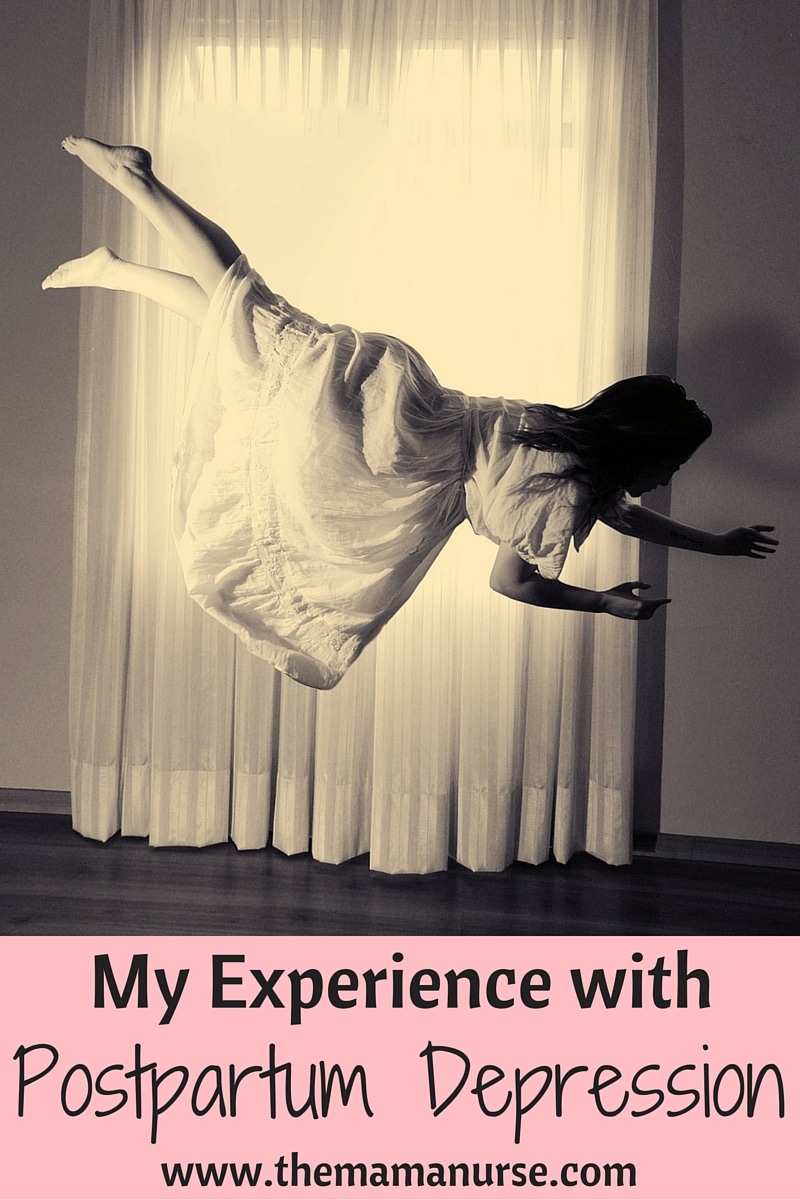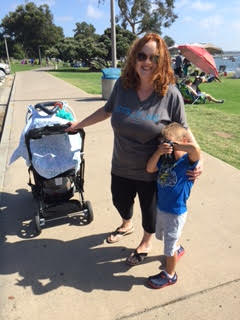I didn’t fit the cookie cutter description of what an experience with postpartum depression should be. I felt like I leaned slightly toward some of the symptoms, but strayed vastly from others. My rendezvous with this condition set in after the birth of our second child and at the age of 29.
His birth triggered moments of immense worry. A healthy portion of the worry dealt with the question of where my professional life was headed. I wasn’t writing for pay at the frequency as I once was. I was beginning to make myself believe that my life only held value if I was participating in professional activities. I purposely neglected the fact that my sons’ and my husband valued me.
The worry didn’t stop there. I worried about what play groups and activities I could get our second son involved in. I drafted a page of activities that my second could participate in when he became of age.
I was trying too hard to control our future.
My mind was constantly populated with questions such as “Am I doing enough? What should I be doing? What are others doing that I’m not?”
This avalanche of planning seemed to temporarily substitute for the fact that my love for him did not come as immediately and as naturally as it did with our first. In my distorted mind, I thought that if I cluttered my mind with thoughts of professionalism, play groups and activities, that it would temporarily mask the numbness I felt.
It made me feel like a failure when my mother asked if I had told him yet that I loved him and I replied that I hadn’t. It made me feel like I had taken the meaning of failure to a new level when she asked me to tell him I loved him and I couldn’t say it. I so badly wanted the words to escape my mouth, but it was as if they were suffocating behind a steel wall.
I literally felt nothing. I was surviving from day to day and between each feeding. I knew something had to be done after I couldn’t utter those three words.
I researched local postpartum support groups and became disappointed when I learned they only welcomed children up to 12 months. I also have a four-year-old and so it wasn’t always a guarantee that I could attend. I wondered what second time mothers with children over 12 months were supposed to do. I felt like the system had failed me.
I then banked on receiving help during my six-week postpartum appointment. I filled out the postpartum questionnaire and felt like I had been punched in the gut when my responses weren’t addressed. I cried on the drive home because I thought it was over. What made it worse was that I hadn’t fully established my own mommy village and I felt lonely. I thought, “if only I had somewhere that I belonged with people who welcomed me, then maybe this wouldn’t be so bad?”
After my six-week appointment I admitted that this was enough, that this was my moment to change. I wasn’t kamagra for sale online going to let myself give up on something this important and so I went out and paved my own road to recovery. I would put myself out into the social world and I would open up to people in a way I haven’t in a very long time.
I started with divulging my feelings to those closest to me.
I suspected my mother had already guessed something was amiss, so I first opened up to her and my aunt. I then opened up to a close friend. The embarrassment of my feelings initially prevented me from sharing my deepest, darkest thoughts with those closest to me, but it actually freed me when I got past the idea of embarrassment. It took me acknowledging my pain before the healing began.
I then put myself out there in ways I haven’t in the past. I became more involved in a local moms group and I started attending a nearby women’s centre. I realised that I’m at a time in my life when I need people around me, that I can’t do it all on my own and that that’s okay. My outlook on life drastically improved when I started participating in activities that I wanted to and not those I felt like I had to. I threw out the drafted page of activities; there’s no need to rush time.
The healing took time, but I now feel a lightness that I hadn’t felt since the birth of our second.
I sometimes wonder if it ever really happened, but then there are moments that I’m holding my baby and I thank the Lord that I made it. I now have such an overflowing amount of love for him that I wonder how there was a time that it felt so unnatural.
But I crawled my way out.
I survived a condition that I used to only think about in abstract terms.
It was something that I used to think happened to others but not me.
As for everything else- I’ve realised that only my story matters. I don’t need to pull from another person’s template and tweak it until it’s a poorly altered match for my unique life and circumstances. I don’t need others to validate me and I am worth every penny even if I’m not participating in professional opportunities. There will always be future professional opportunities, but my newborn will not always be a newborn and my toddler will not always be a toddler. These days are fleeting and I’d rather focus on the present than focus on an uncertain future.
I’m proud to be a survivor.
BIO: I’m Jeannette, a mom to two boys who has chosen to write. The birth of our second challenged me to further open my heart to people and experiences. I believe surviving postpartum depression made me stronger and I encourage women who are battling postpartum to also reach out to those around them. I love to read and hope to one day conquer the book stashes that can be found in various places of my home. You can find me on Twitter @jromeswan.






This post is so important because everyone has a different story and a different experience. There shouldn’t be a cookie cutter PPD diagnosis and I’m sad that you didn’t get the help you needed from the doctor or those groups. Seriously though, I get that a lot of these types of groups are geared towards first time moms, but everyone needs a support group because each child and each pregnancy are different, and what are moms supposed to do with their older than 12 months children?
Thanks for your response Julie! I didn’t even think it was possible to feel that way. I never had such feelings after our first. Thanks for reading 🙂
Postpartum depression is so scary because it looks different for everyone. I hate the stereotype/cookie cutter version that everyone associates. I’m so glad Jeannette shared her story to let other moms know it’s not always the same for each person. 🙂
Thank you so much for your kind reply Samantha! I am so glad that I was able to write this and that Tori featured it here.
jeannette is one of the bubbliest happiest people I know, so for it to happen to her means no one is exempt from what our brains and hormones can do to us! J I was a wreck after having Hailey – and I think the word “abstract” was PERFECT for explaining how this can ravage someone. its not black and white, its can come at you from every angle and turn everything upside down!